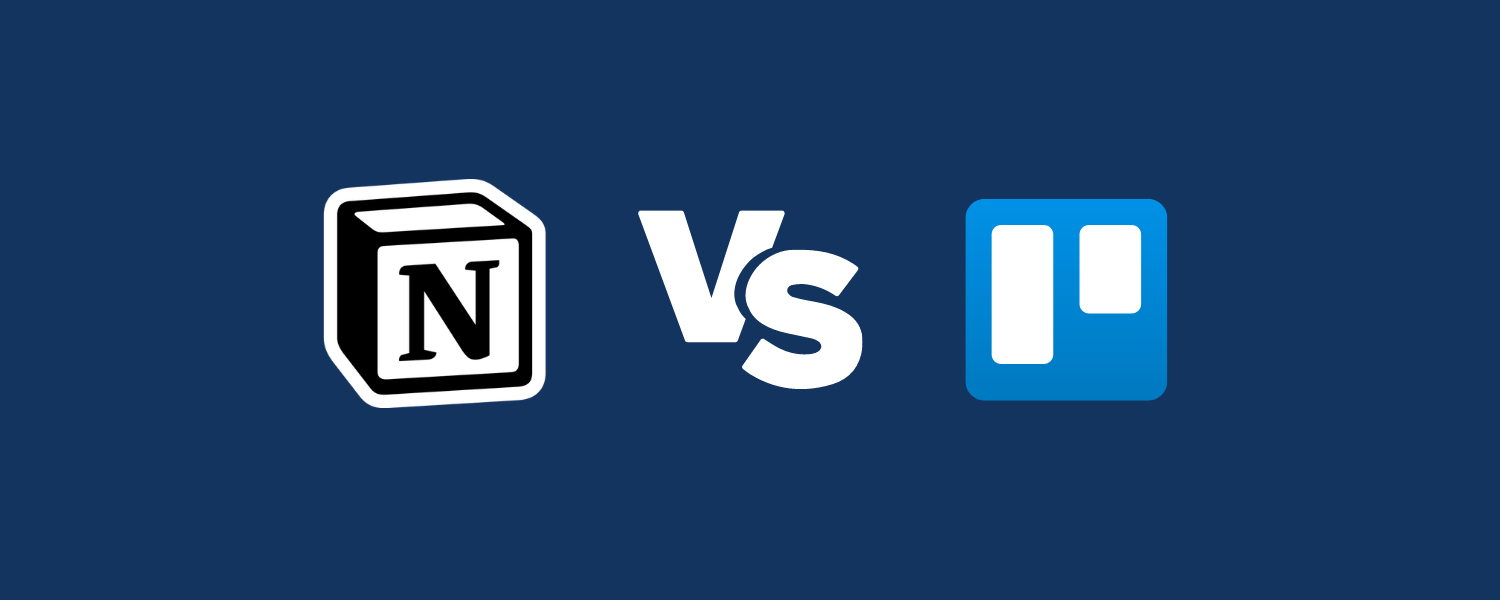You may have heard of Notion and Trello. Both are two popular productivity platforms used by individuals, teams, and companies of any size. Notion can be described as an all-in-one workspace defined by its flexibility, while Trello stands out for its intuitive design with Kanban-style boards for task management. So, which one is better for your use case: Notion or Trello? Keep reading.
Table of contents
Notion vs. Trello at a glance
| Feature | Notion | Trello |
|---|---|---|
| Ease of use | Steeper learning curve due to flexibility | Intuitive, simpler to start with |
| Unique features | AI capabilities, extensive documentation, and embedding options | Extensive selection of Power-Ups and integrations |
| Flexibility & customization | Highly flexible and customizable, more extensive feature set | Less flexible, focused on Kanban boards but with some new views in the Premium plan |
| Project management | Not solely focused on project management, offers other tools like wikis and databases | Optimized for project management with a focus on Kanban system |
| User interface | Modern and slick, might be overwhelming due to options | Simpler, visual organization, may appear dated to some |
| Integrations | Slack, Jira, GitHub, Asana, unlimited templates by Notion and by the users | Numerous third-party integrations, unlimited templates designed by the community |
| Platform support | Web, iOS, Android, Windows, macOS | Web, iOS, Android, Windows, macOS |
| Pricing | Free, $8/user/month | Free, $5/user/month |
| Customer reviews | 4.7/5 on G2 | 4.4/5 on G2 |
Reasons to choose Notion
- Complete project management tool
- Customizable workspaces with hundreds of templates
- Timelines, calendars, wikis, and Gantt charts
- Unparalleled flexibility beyond Kanban boards
- Content syncing across multiple spaces for consistent updates
- Suitable for both individuals and teams of any size
- The free plan offers a vast array of features
Reasons to choose Trello
- Straightforward task management with Kanban boards
- Clear visual organization of tasks and projects
- Optimized for project management
- Minimal initial setup
- Wide range of Power-Ups and integrations
- Generous free plan well-suited for individuals and small teams
What is Notion?
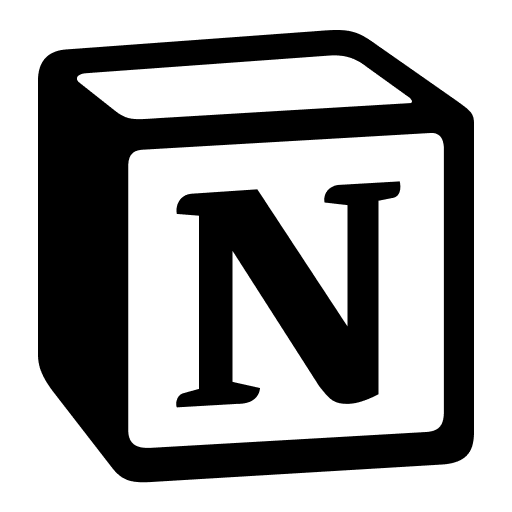
Notion is an exceptionally flexible productivity platform that combines a variety of organizational tools such as Kanban boards, tasks, wikis, and databases.
It’s designed as a versatile workspace for note-taking, knowledge and data management, as well as project and task management.
Notion supports file management within a single workspace, facilitating user comments on projects, participation in discussions, and feedback receipt.
Accessible across various platforms and most web browsers, Notion includes a web clipper for content screenshotting. It supports task scheduling, file management, document saving, reminder setting, agenda keeping, and work organization.
The app is user-friendly, although very powerful, requiring no specialized training. It incorporates AI and a library of templates for enhancing content creation and organization.
👉 Learn more: Notion AI vs. ChatGPT: Which AI Tool Is the Best for You?
What is Trello?
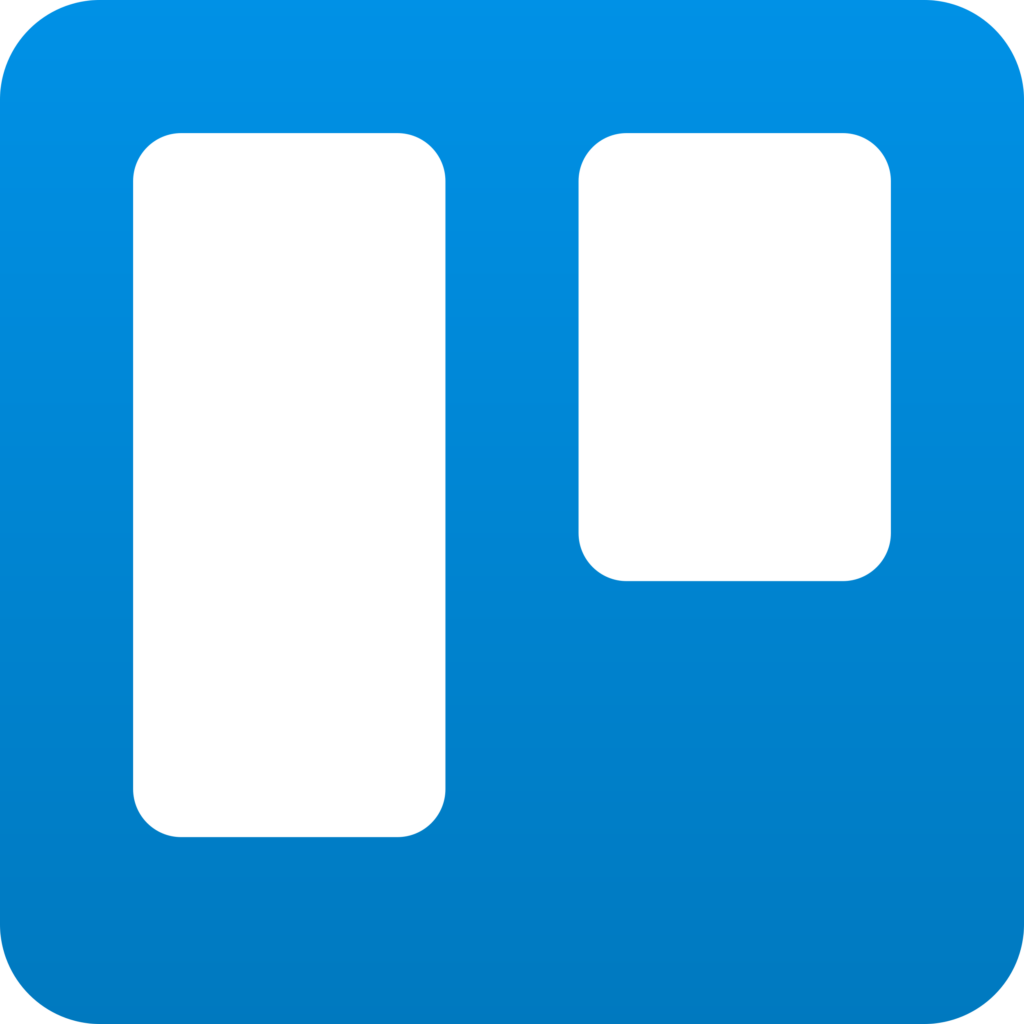
Trello is an intuitive visual collaboration tool that facilitates project and task management for both individuals and teams.
It organizes projects into boards, providing an overview of what’s being worked on, who’s involved, and the progress of tasks, all at a glance.
Trello’s layout, inspired by the Kanban system, is structured around boards, lists, and cards. It enables users to categorize tasks and track their progression through various stages, typically from ‘To Do’ to ‘In Progress’ to ‘Done.’ This setup is designed to be intuitive, allowing for easy organization and prioritization of tasks.
The platform is highly adaptable, catering to various uses, from software project management to lesson planning, making it a versatile choice for personal and business purposes.
Over the years, Trello has expanded its functionality through the Power-Up platform, which allows third-party developers to create add-ons that integrate additional features and services.
Notion vs. Trello: Which one is better for you?
Deciding between Notion and Trello hinges on your priorities: Notion’s all-encompassing flexibility or Trello’s straightforward, visual task management. Read more to know which one is better for your use case.
Ease of use
Notion is renowned for its versatility and the breadth of functionalities it offers, ranging from note-taking and document management to comprehensive project planning and database creation.
This extensive feature set, however, comes with a steeper learning curve. New users might initially find Notion overwhelming due to its open-ended nature and the plethora of options available for customization. And yes, the drag-and-drop feature is also a thing here!
Despite this, Notion provides a rich repository of templates and a robust help center to assist users in navigating through its features, gradually easing the learning process. The investment in learning how to use Notion effectively can yield high returns in terms of productivity and organizational efficiency.
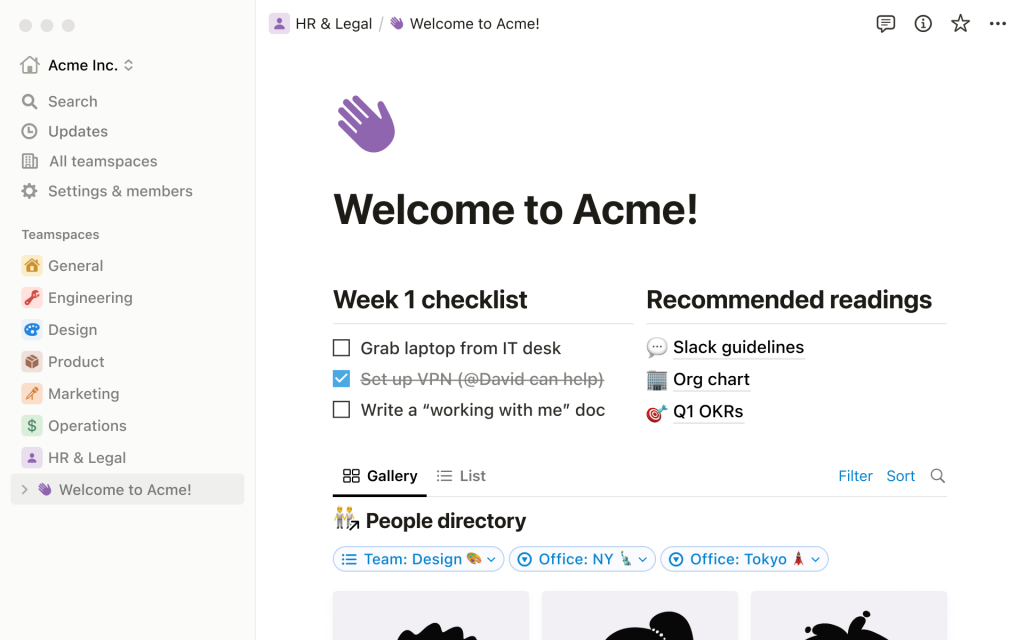
Image by: Notion
In contrast, Trello’s user interface is designed with simplicity and intuitiveness in mind, making it highly accessible for users of all technical backgrounds. The platform employs a straightforward Kanban board approach, where tasks are visualized as cards that move across lists representing different stages of a project.
This visual and drag-and-drop approach reduces the initial barrier to entry, allowing teams and individuals to quickly set up their workflows and start managing their tasks with minimal setup.
Trello’s simplicity, however, doesn’t compromise its power. Through the use of Power-Ups and integrations, Trello can be extended to meet a wide range of needs, providing both simplicity for beginners and depth for power users.
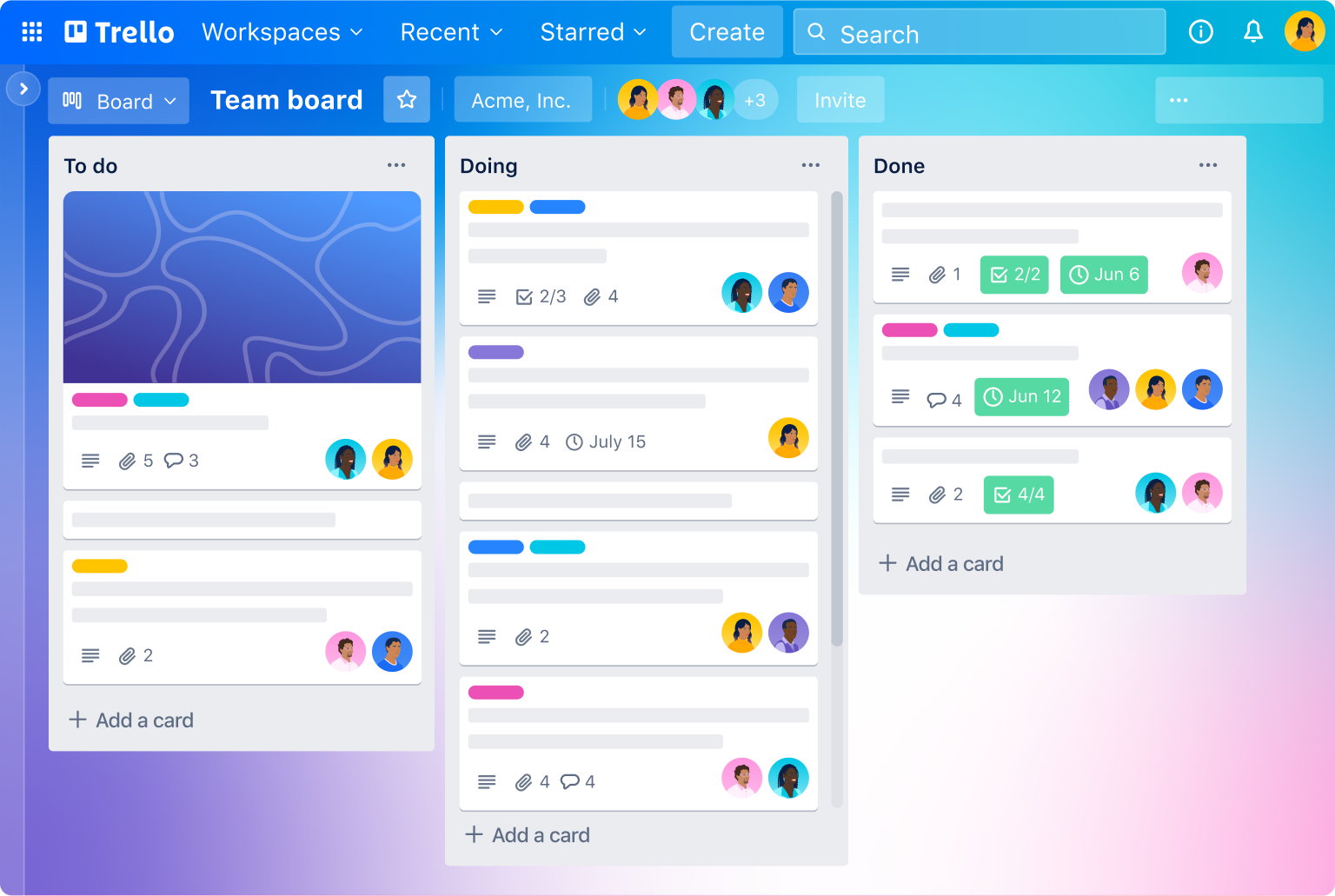
Image by: Trello
Customization and flexibility
Notion shines for its endless customization capabilities, providing a flexible all-in-one workspace that suits any use case. This level of customization is achieved through its unique block-based system, where everything you create is a block that can be easily moved, linked, and embedded within other pages.
Notion’s approach to customization is akin to building with Lego blocks, offering the freedom to construct virtually any type of digital workspace you can imagine, from simple task lists to complex project management systems with integrated databases and calendars. There are no limits!
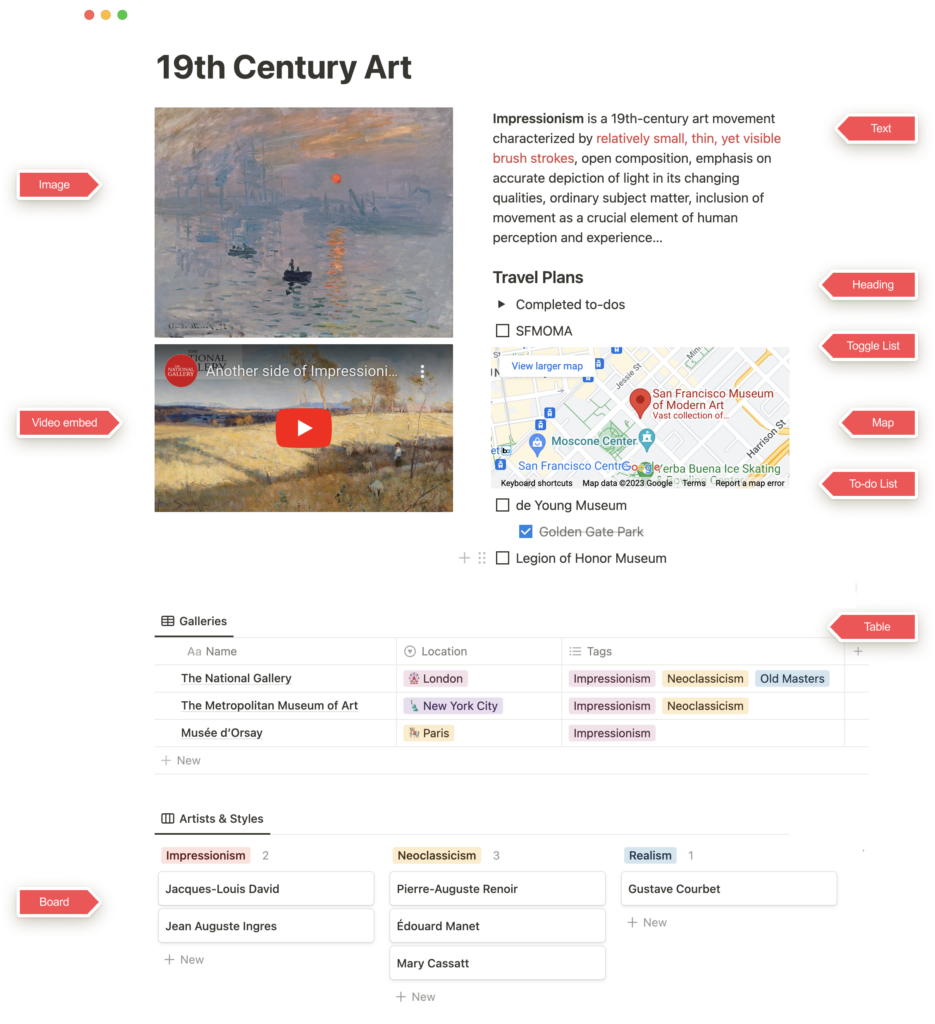
Image by Notion: What is a block?
Trello, on the other hand, focuses on a more straightforward, card-based system that offers a different kind of flexibility. Each Trello board is made up of lists, with each list containing cards that represent tasks or items. This simple yet effective structure is highly customizable through the use of labels, checklists, due dates, and attachments that can be added to each card.
While Trello’s customization options might not offer the same level of depth as Notion’s, they provide a user-friendly way to adapt the platform to different projects and workflows, making it a powerful tool for teams and individuals who appreciate clarity and simplicity.
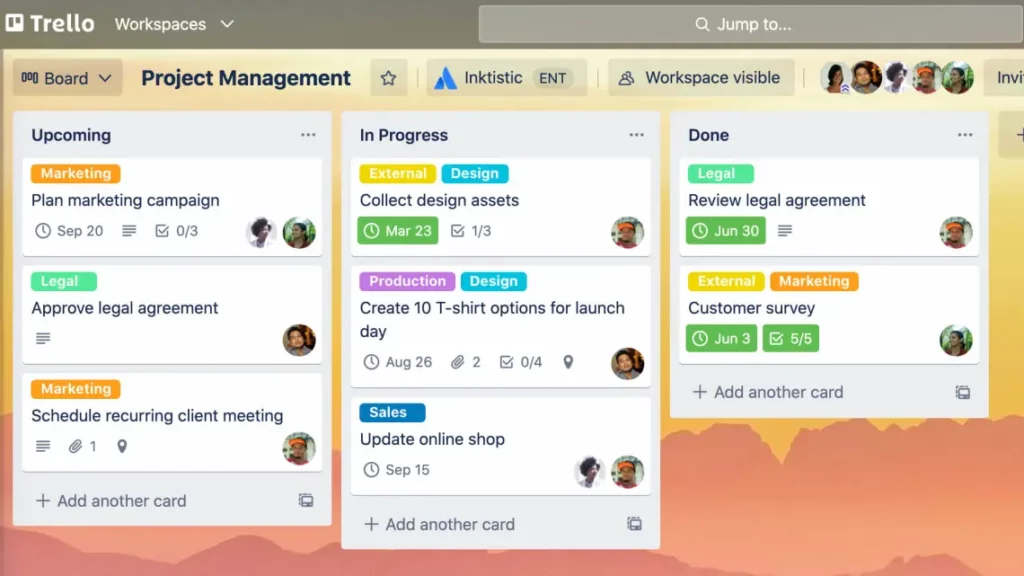
Image by: Trello 101
Collaboration and teamwork
Notion is designed to be a comprehensive workspace that supports not just individual productivity but also team collaboration since it allows for real-time collaboration on documents, databases, and other content types within the workspace.
Team members can comment on any part of a page, mention colleagues to bring them into discussions, and share entire workspaces or specific pages with both internal and external collaborators.
Furthermore, its granular permission settings enable admins to control who can view or edit various parts of the workspace, ensuring that sensitive information remains secure while fostering an open environment for collaboration.
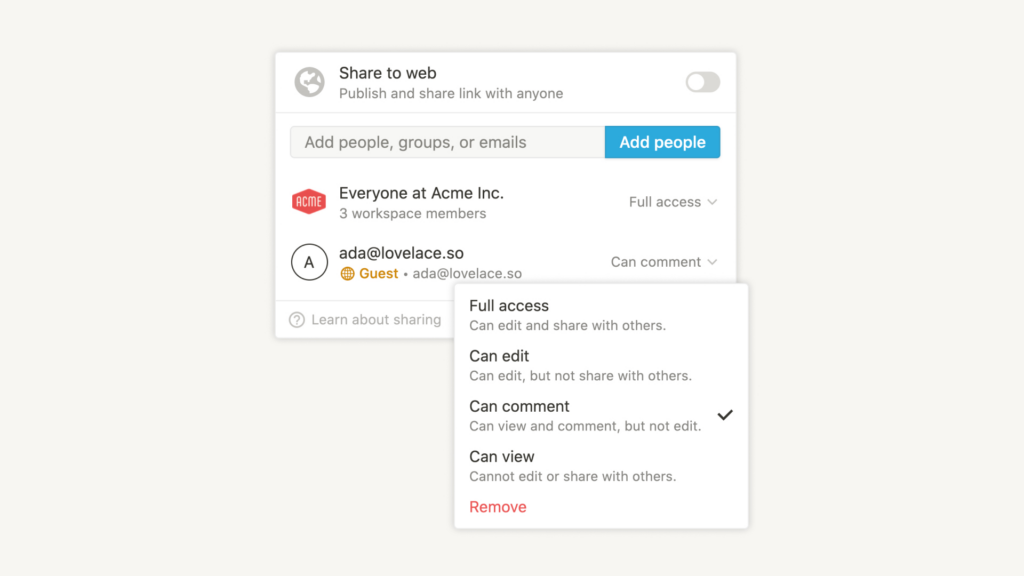
Image by Notion: Collaboration & publishing
Trello, with its intuitive Kanban board system, is inherently collaborative. It simplifies task and project management by allowing team members to create, assign, and track tasks through a visual interface.
👉 Learn more: 10 Best Kanban Software in 2024
Trello boards can be shared with an unlimited number of members, making it easy to bring entire teams together to collaborate on projects. Each card on a Trello board can contain checklists, due dates, attachments, and comments, facilitating clear communication and task delegation among team members.
Conclusion
Both Notion and Trello offer robust platforms for project management and productivity, each with its unique strengths. Whether you prioritize Notion’s all-in-one workspace flexibility or Trello’s straightforward, visual task management, integrating your work tools can significantly enhance efficiency.
With 2sync, you can seamlessly sync Notion with Google Calendar, Todoist, and more apps, turning Notion into a truly unified workspace. Embrace the power of automations and streamline your workflows to maximize productivity.


